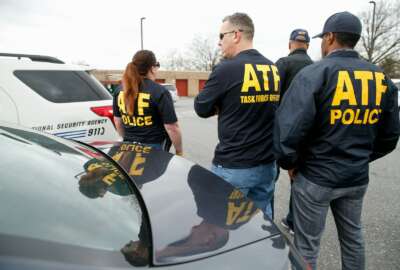
Law enforcement mental health deserves same attention as physical, new report says
For law enforcement officers, good mental health is just as important as physical health, though it seldom gets the same attention.
For law enforcement officers, good mental health is just as important as physical health, though it seldom gets the same attention. That’s just one of the takeaways from a new report to Congress in response to the 2018 Law Enforcement Mental Health and Wellness Act. The Justice Department’s Office of Community Oriented Policing Services, aptly abbreviated to COPS, published its report to Congress on the subject last month.
The second major takeaway, according to Deborah Spence, assistant director for training and partner engagement at COPS, is that while good work in law enforcement mental health does exist, it’s disjointed and complicated by privacy concerns, insurance issues and lack of understanding about law enforcement culture.
Third, this is a moving target.
“This is something that will have changing needs over the course of a career and maybe even to the type of jobs that you’re doing within your department,” Spence said on Agency in Focus: Justice Department. “And so the more that we can work to build whole health programs that integrate both physical and mental health, as well as education and prevention and programs for officers and their families, the healthier that officers will be in our communities will be.”
The act required COPS to look at both the Defense Department and the Department of Veteran Affairs to search for any mental health best practices or services that would be advantageous to adapt into the law enforcement community. Part of that stems from a new understanding of similarities in mental health needs between the military/veteran and law enforcement communities.
“In recent years, we have had more and more conversations about the extent and nature of PTSD in the law enforcement community and working to recognize that that is a problem that we need to be conscious of,” Spence said. “And also to recognize that there are a lot of veterans that come into law enforcement who might already have seen and witnessed traumatic things and other situations and to not presume they’re a blank slate when they come into this department. And the volume of conversations that we have around cumulative stress and posttraumatic stress has really increased dramatically in the last couple years. So I think we’re going to start to see more and more research on the extent and nature of it in law enforcement.”
But the similarity with the veteran experience doesn’t end there. There tends to be an assumption that only a veteran can really understand what a veteran goes through, though that assumption has at times been challenged by members of the psychiatric community. The same assumption tends to exist with law enforcement officers due to the unique nature of their jobs.
Related Stories

Former ATF whistleblower says agency needs permanent director, accountability
The report was based on a number of case studies of police departments across the country, varying in size from Las Vegas and Dallas at the larger end of the spectrum, to as small as the 100-officer department in Bend, Oregon. The study also took into account the varying resources available to different regions.
The study found that the differences, on the whole, tended to be more related to job assignment. For example, an officer in a more rural department, or even a state or federal agency stationed in a rural area, could spend a great deal of time patrolling on their own, and could be hours from backup at any given time. Larger departments in more urban areas also tend to have more resources available to them, and may have more robust mental health programs.
But the mental health issues themselves tend to be the same across the board, Spence said, and small departments like the one in Bend can have much different approaches than their larger counterparts.
“I actually think they offer one of the more promising ideas in the case studies report, not so much in a specific program sense. But in terms of philosophy, or an approach, Chief Porter in Bend talks about how we should think about our investment and officer wellness,” Spence said. “And I actually made a note of a quote: He said, ‘We expect officers to perform like athletes physically, we expect their minds to be sharp like doctors in stressful situations, and we work them ridiculous hours. If we want officers to be effective and efficient in their jobs, we must support their wellness holistically.’ And I think the rest of that case study really goes to show how he did that. It wasn’t about what are his ideas of what might be helpful. It was really about talking to his officers and saying ‘what do we need to continue to get up and go to this job every day and do it well and enthusiastically?’”
Copyright © 2025 Federal News Network. All rights reserved. This website is not intended for users located within the European Economic Area.
Daisy Thornton is Federal News Network’s digital managing editor. In addition to her editing responsibilities, she covers federal management, workforce and technology issues. She is also the commentary editor; email her your letters to the editor and pitches for contributed bylines.
Follow @dthorntonWFED




